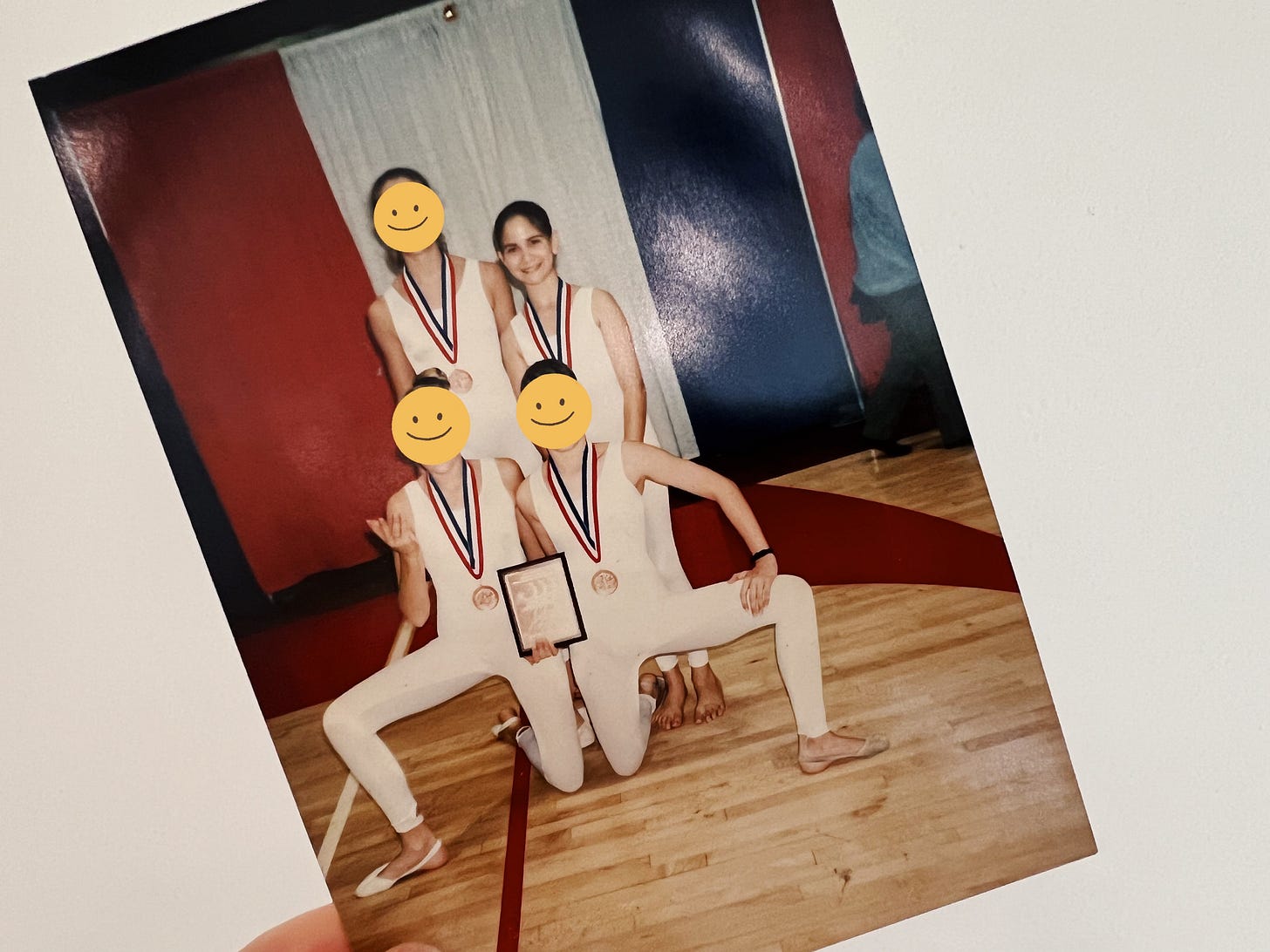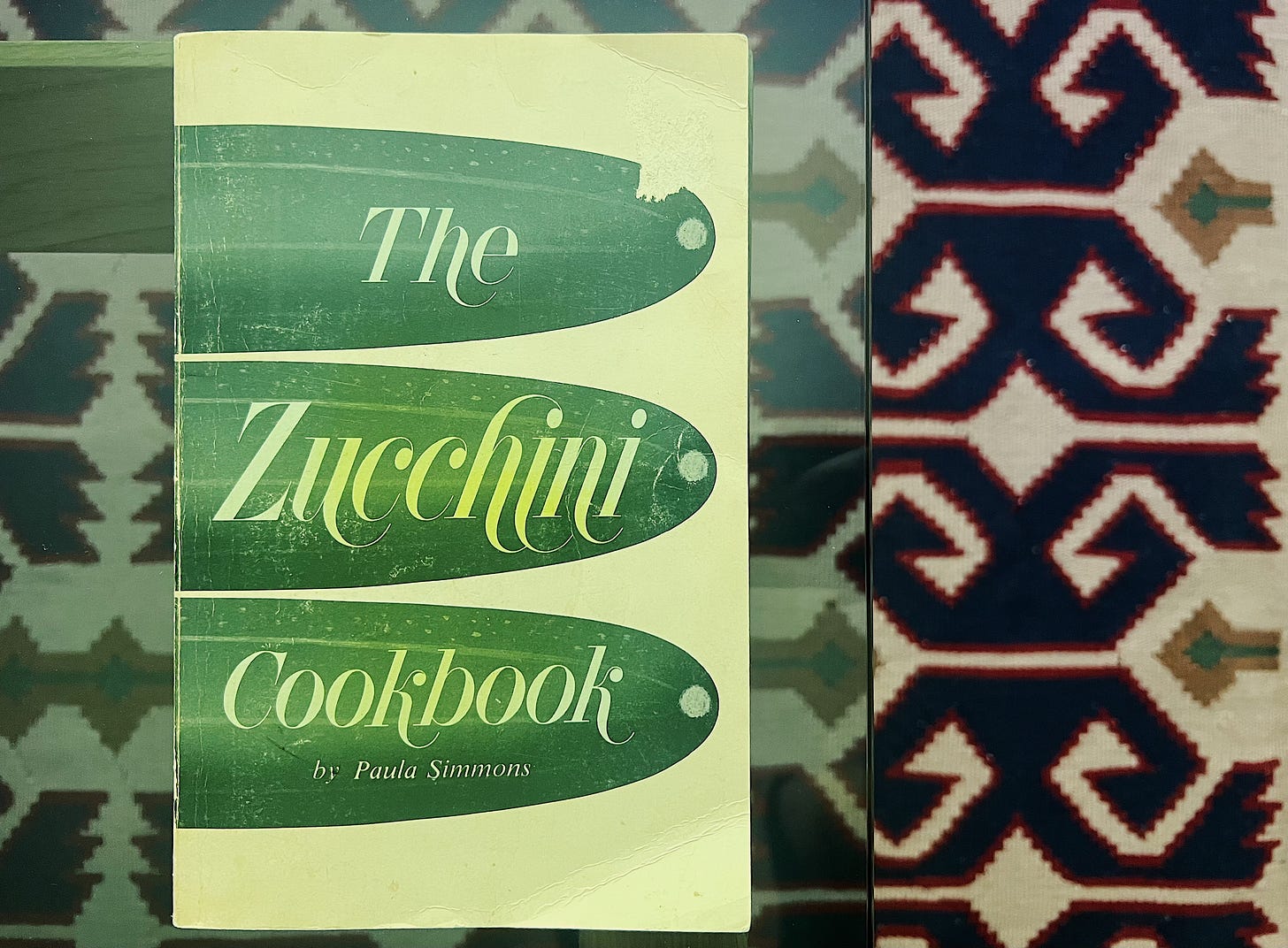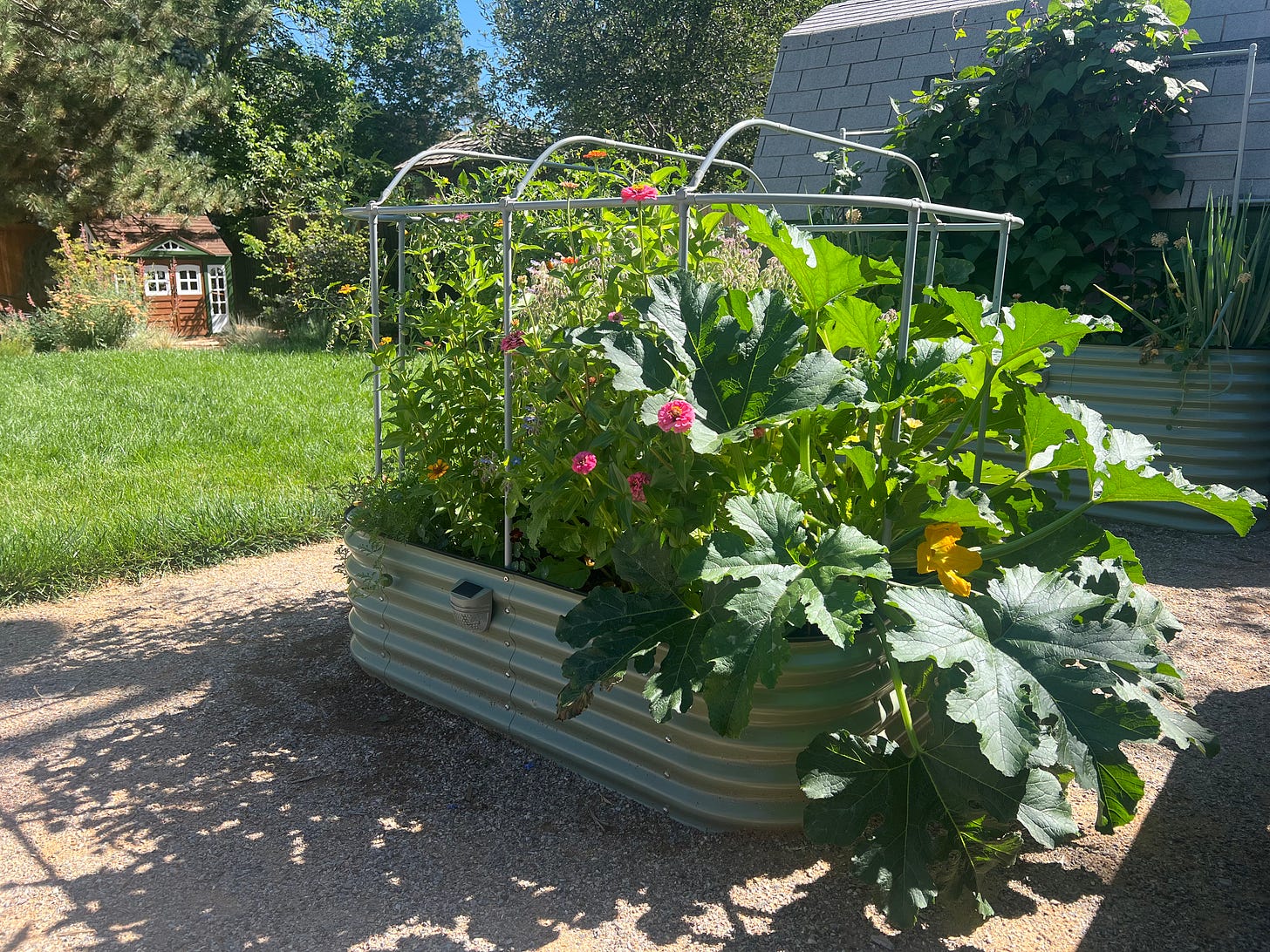No Plot, Just Vibes: Rhythmic Gymnastics, Zucchini Recipes, and Tarot
a disjointed dispatch from my weird brain

I’ve always been vaguely athletic—I count hiking and yoga among my favorite hobbies; I’ll always choose to walk over drive—but I don’t like sports. I don’t play them—no, I don’t want to join your intramural kickball league or sub for someone at volleyball tonight—and I don’t care to watch them, either. I went to a big football school, and now live in a city that’s very proud of its professional football team, and yet I cannot tell you the first thing about football. So many drunk dudes have bothered to explain the rules to me over the years but I’ve never once bothered to listen. I don’t care which team wins; I’m just here for the party.
Deep down, I know my reaction to competition is unusual and likely linked to some buried trauma—I am the eldest daughter of two shrinks, after all—but on the surface, I don’t like sports and the people in my life know this about me, which is why they’re inevitably surprised when they learn that I was once a competitive athlete. As a kid, I traveled internationally with my team and even won a bronze medal at the Junior Olympics. For a time, my coach lived at my house; I had practice twice a day—and now, every four years, I watch the Summer Olympics for the one sport I’ve ever had any real feelings for: rhythmic gymnastics (yes, the one with the ribbons.)
I don’t remember how I was first introduced to the sport, or why a surprising number of the girls at my small elementary school were rhythmic gymnasts. Some took it quite seriously, setting their sights on a professional career. I wasn’t one of them. I was never the best on the team. I enjoyed it—the choreography, the costumes, the apparatus—but knew it was a phase that I’d eventually grow out of. When I discovered other pastimes like cute boys and drinking Boone’s Farm in parking lots near the beach, that’s what I did. I told my parents I was done, and they said okay—and now my years as a rhythmic gymnast are little more than an icebreaker anecdote; a relic of a luxurious youth.
My long-term memory has never been strong. This becomes more obvious as I age; as events and faces and conversations shift from immediacy into something muted, something I can no longer place. I can’t tell you anything about my favorite college professors, or why I stopped hanging out with my best friends from eighth grade, or that trip to Las Vegas that you keep referencing in the group chat. I’m sorry, I don’t remember—and I used to feel embarrassed about it, and sometimes still do despite having something to blame it on. I joke that this is why I’m writing autofiction, not memoir. But in reality, the answer to that particular question is more complicated; more about the sad, angry parts that I don’t want to think about but can’t leave out—and so, in some ways, my forgetfulness feels like yet another weird trauma response.
Outside, the world feels on the brink of big change—politically, sure (fingers crossed) but also of season. It’s something I’ve learned to pay close attention to, after a lifetime of perpetual summer. It’s still hot but morning has picked up a chill, a harbinger of fall. My garden is overrun with zucchini and grasshoppers, both too fat and too many for me to manage. For the first, at least, there are recipes—and I find myself automatically compiling a cute little hyperlinked list, a holdover habit from when I wrote things like this for a living:
Make carpaccio when they’re young and small. Top it with toasted pine nuts.
Make parmesan when they’re big and burly.
Try this Korean-style dish when you’re sick of Italian food.
Bake bread when you’re sick of zucchini altogether.
I’d make this caramelized zucchini and white bean salad if I had any hope of getting my three-year-old to eat beans.
Maybe he’ll try this healthy zucchini oatmeal snack cake, if I just call it cake.
He loved this zucchini pasta last summer (as did his parents—it’s so, so good) but as most parents of little kids will tell you, when it comes to food, they are a completely different person every few months, just to keep us on our toes.
My son has taken to categorizing animals as either “good for the garden” or “not good for the garden.” I think it started early in the summer, when we purchased a bag of ladybugs to hunt the aphids that were ruining the pink mizuna. It’s since been determined that snakes and spiders are good for the garden, and birds are not. Squirrels also are not, and they’re rude to the dog. Caterpillars are not, but they turn into butterflies, which are. There is a greater lesson there, I’m sure, I think. When I can think, I’m sure I’ll figure it out.
It’s been a weird year, after a series of weird years. My thoughts are pulled from me like strings of melty cheese, baked by hot August afternoons. (I apologize for the visual. I don’t know what is wrong with me.) Some—about my creative projects and work and things I can control—are good for me. Others—basically anything related to finances—are bad. Thoughts of my father’s health are bad, because they’re primarily worries. But they’re necessary, pressing as we prepare for a new season.
As someone who’s regularly consulted psychics for decades, I’ve had my cards read countless times. But I’ve never thought to learn how to do it myself. I didn’t own a Tarot deck until a few months ago, when I ordered one to research something in my novel and also figured, hey, I should probably own a Tarot deck. I mean, I’m the type of person who would own a Tarot deck. Now I do, and I’ve been poring over the cards, scrutinizing the meaning of each. At first, they all seem the same; variations of success and doubt and inner peace. There is nuance, and yet, I keep coming back to: There are so many ways to tell a story—so many ways to reveal a detail, or leave negative space.
I still have not attempted to do my own reading because I doubt I have any clairvoyant power, and because (as a devout agnostic) I believe I could be wrong, and because events from the past few years make me hesitant about the next.
A year from now, or ten, what will I remember? How will I categorize this time? It depends on what happens next.
The trees in our front yard will turn bright red, then fall asleep. My son will change his mind eight more times about what he wants to be for Halloween. He’ll say he isn’t tired, then fall asleep. I’ll stay up too late writing, then (hopefully) fall asleep.
This piece on LA teens’ back-to-school outfits is so wholesome.
An interesting look at how brands choose influencers in political fraught times.
An overview of the Surgeon General’s new social media guidelines.
“Buildings by themselves aren’t evil.” - how Germany is grappling with a strange real estate conundrum.
This quote feels like the stuff of systemic change.
Not sure how I feel about this but I think like it might be…good?
RIP to the best era.
What a weird story.
Yes.









